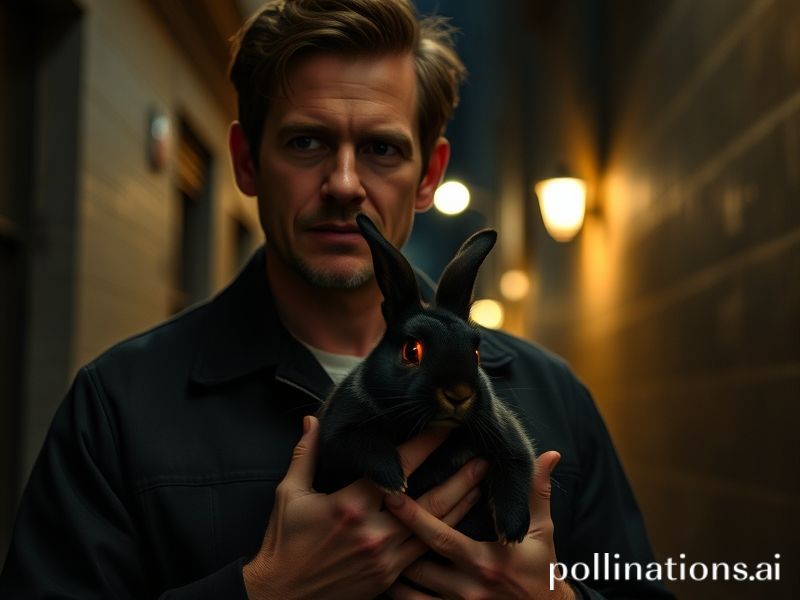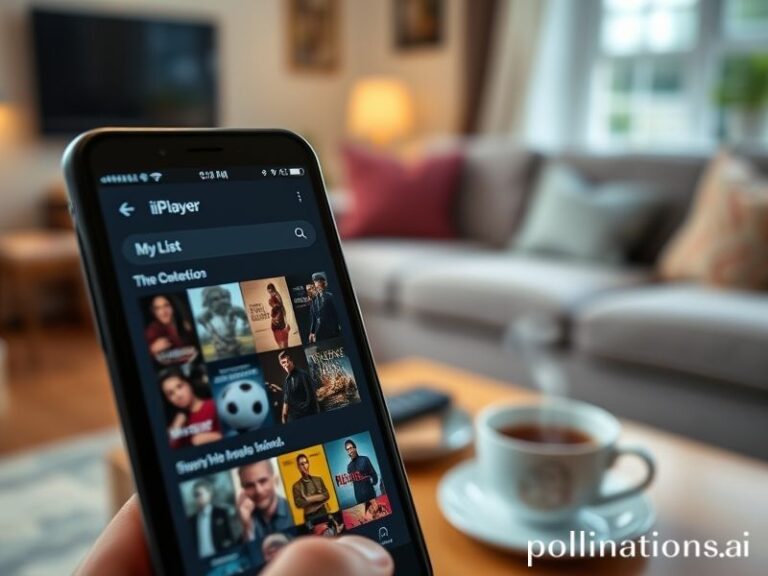How Jason Bateman’s ‘Black Rabbit’ Became the Planet’s Favorite New Anxiety Blanket
Black Rabbit, Jason Bateman, and the Worldwide Art of Selling Nothing Very Loudly
By Diego M. Salgado, Senior Correspondent, Dave’s Locker
Somewhere between the Kremlin’s latest cryptic press release and TikTok’s newest dance craze performed on a melting glacier, Netflix dropped the trailer for “Black Rabbit.” The limited series stars Jason Bateman as a middle-aged fixer who trades in secrets the way other men trade in crypto—frenetically, and usually at 3 a.m. while pretending it’s still a respectable profession. From Manila to Montevideo, the announcement was greeted with the same global shrug that accompanies most streaming PR: a collective “Sure, why not, I’ve already re-watched The Office nine times.”
Yet beneath the algorithmic noise lies something bigger than one show or one actor. “Black Rabbit” is the perfect emblem of our current planetary mood: a sleek, expensive piece of content designed to distract us from the fact that the planet itself is filing for Chapter 11. Bateman, whose face has become the universal emoji for “pleasantly exhausted,” is the ideal avatar for late-capitalist burnout. In Germany, commuters binge his shows on U-Bahn Wi-Fi while fretting about winter gas prices. In Seoul, marketing executives screen-grab his furrowed brow to illustrate PowerPoints on “empathic leadership.” In Lagos, bootleg DVDs label him simply “That Guy From Ozark,” because Nigerian street vendors are nothing if not pragmatic.
The plot of “Black Rabbit” is almost irrelevant—something about a shadowy consultancy that trades in geopolitical blackmail, or maybe artisanal extortion. What matters is how instantly it metastasizes across cultures. Within 48 hours of the trailer release, Brazilian meme accounts had recut it with a funk soundtrack; Japanese salarymen turned Bateman’s weary stare into a Line sticker pack labeled “Corporate Despair-san.” The French, naturally, declared the whole thing “très néoliberal,” then queued up to watch it anyway.
This is globalization’s latest magic trick: we all pretend to hate the same things together. The show’s title itself—Black Rabbit—sounds like it was spit out by a focus-group AI trained on late-night Wikipedia binges and urban-dictionary sludge. It evokes espionage, sure, but also doomscrolling, supply-chain anxiety, and the nagging suspicion that your smart fridge is judging your midnight snacks. In short, it’s the perfect product for an age when content is anxiety commodified.
Meanwhile, the real black rabbits—actual dark-money networks, offshore servers, and politicians who moonlight as venture capitalists—continue their hopping unbothered. The show will trend, the memes will multiply, and somewhere a mining consortium will bulldoze another forest while a junior associate in Geneva buys a second yacht because cobalt prices ticked up 0.4%. The series will win an Emmy for “Best Depiction of Moral Ambiguity by Someone Who Looks Like Your Dad,” and we’ll all tweet our praise between breaking-news alerts about heat domes and coups.
Bateman himself, ever the professional, has already begun the obligatory press tour. In an interview with the BBC he deadpanned, “I just play guys who are tired of pretending not to be monsters. Seems relatable.” Viewers from Jakarta to Johannesburg nodded along, recognizing the exhaustion in his eyes as the same one reflected in their own Zoom squares.
When the final episode drops, spoiler threads will erupt in seventeen languages. A Bolivian subreddit will debate whether the finale is secretly about lithium extraction; Finnish gamers will mod Bateman’s character into Counter-Strike. And somewhere, in a dimly lit room whose location is protected by a Caymans shell company, an actual fixer will watch the finale on a cracked iPad, chuckle at the naïveté, and close another deal that will never trend.
So here’s to “Black Rabbit”—our newest global campfire story, glowing softly while the world burns. It won’t change anything, but at least we’ll all be equally distracted. And in 2024, that passes for international cooperation.







